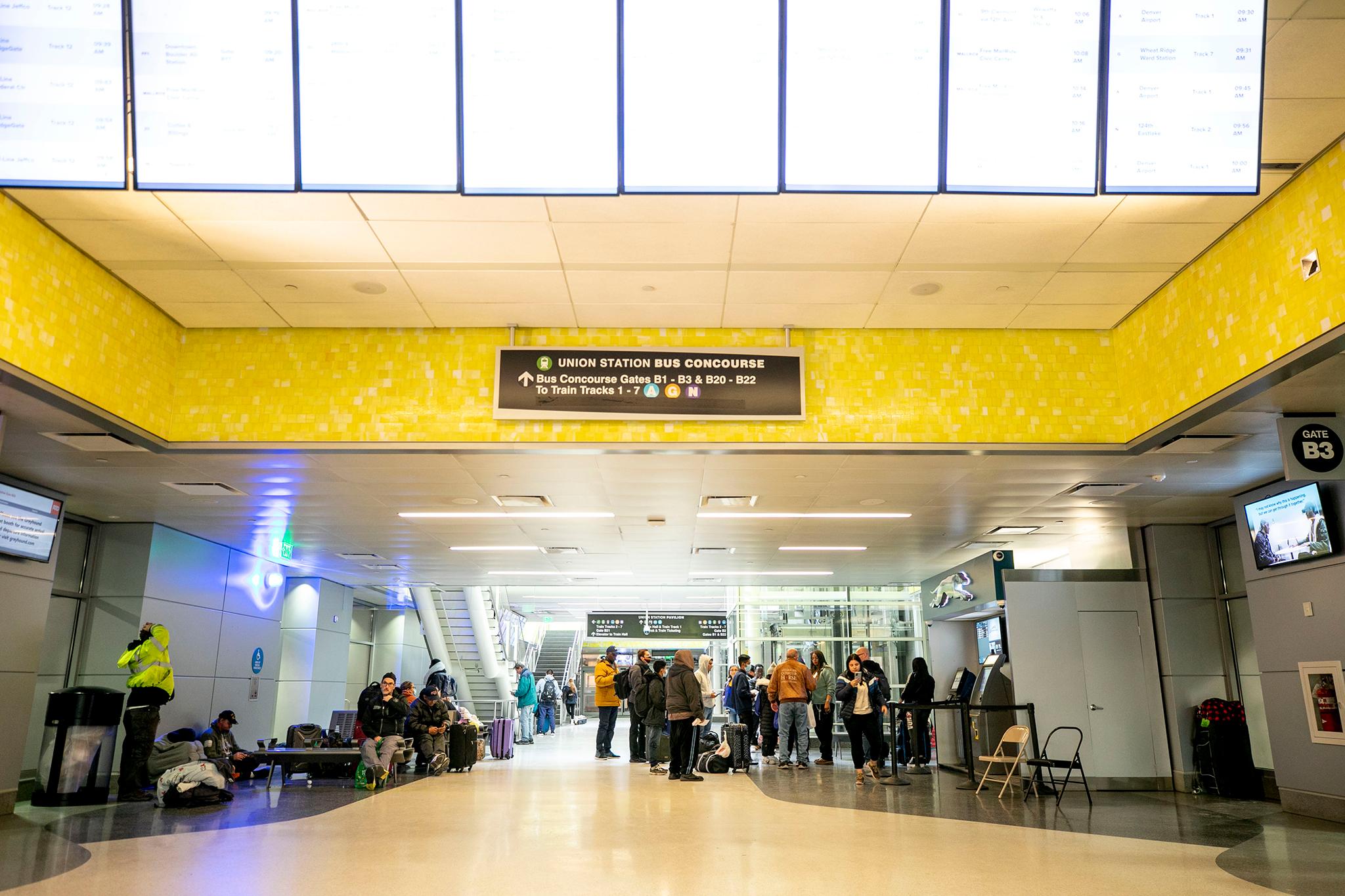City and state officials are working in partnership with local organizations to help migrants and asylum seekers arriving from the southern border travel from Denver to where they actually intend as their final destination in the U.S.
"About 70% of the migrants arriving in Denver don't have Colorado as a final destination and due to weather and workforce shortage, they have been experiencing transportation cancellations," wrote Gov. Jared Polis in a statement Tuesday.
As a result, the state is partnering with two nonprofits that are "culturally competent navigators" to help people make voluntary decisions about future travel throughout the U.S.
One group is Papagayo, a Denver organization that supports the Venezuelan and other Latino communities in Colorado and has been active in helping collect donations for people arriving in the city. The other is the American Friends Services Committee, which has also been deeply involved in the response to arriving migrants, a spokesperson for Polis' office said.
Neither group immediately responded to Denverite's request for comment.
The city has seen thousands of people arriving in Denver, most of them traveling up from the southern U.S. Many are from Venezuela. The continued arrivals have put a strain on the city's existing and emergency shelter resources.
Mayor Michael Hancock said he and other mayors across the country are calling for Congress and the Biden Administration to provide more support.
"States and cities not on the border are ill-equipped to address these challenges, and absent federal support and leadership, we're left to strategize and take actions to ensure this vulnerable population - people who've come here with no resources or means - are safe and treated humanely," Hancock said.
In the past month, city officials have opened emergency shelters and called for additional staff for support.
In December, Hancock said the city is on "the verge of reaching a breaking point."
The Archdiocese of Denver also announced this week that it is considering using the Mullen Home as an additional shelter for migrants, after Hancock appealed to the church and nearby cities for help.
The Mullen Home served as an elderly care center before closing last August.
"As the property only recently came under the Archdiocese's possession and some parts of the building are over 100-years-old, we need to ensure we can receive people safely," wrote the Archdiocese in a statement.
This article has been updated with the names of both nonprofits the state has partnered with.












